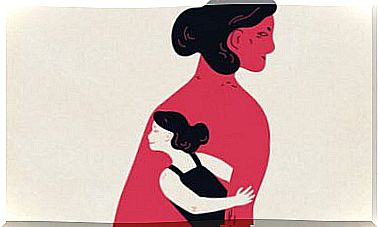When I Accept What I Cannot Change, I Feel Free

When I accept what I cannot change my suffering is reduced and only then do I focus on what I can control. Because life has that chaotic and unexpected component that often escapes our hands, that emerges free, that surprises us with its nonsense and chance. Assuming this existential principle is a tool for our mental health.
Let’s face it, things have happened to us throughout our existence that we never would have anticipated. Even more, something that often despairs us is seeing how some people suddenly act in an unexpected way. So much so that it is inevitable to experience some disappointment. All these situations can make us believe that nothing, absolutely nothing is under our control.
As the psychotherapist Albert Ellis pointed out, there are three monsters that always veto our happiness and all three are based on our very need for things to be as we wish. Those three great enemies would be “life has to be easy, people have to always treat me well and everything I do has to be perfect.”
The mind does not admit failure, error, or disappointment. Even less the unexpected. Moreover, as several studies indicate, our brain is more prepared to withstand physical pain than uncertainty itself and what is beyond our control. Let’s dive a little deeper into this topic.

When I accept what I cannot change, I can act more wisely
There are learnings that do not come in books. There are wisdoms that we do not learn from our parents. We speak above all about those events that come with experience and that, in some way, change us.
We would have loved, for example, that the person we loved in the past had been and acted differently. Few things would have liked us more than to avoid adversity, than to have had a magic ball to foresee certain things or events that affected us so much.
Life is not a straight line path. It is uncertain, unexpected and has even tiny cracks through which chaos seeps. Assuming it supposes an immense psychological effort for any of us.
Aldous Huxley pointed out that this would not happen to us if we were taught philosophy as a child. Because that area of knowledge trains human beings in the healthy art of doubting the apparent, of questioning what we see and of accepting the kingdom of uncertainty.
However, philosophy perhaps neglects one small aspect: the brain needs certainties. Nothing causes us greater suffering than the feeling of not having control of our surroundings. Furthermore, to think that what we take for granted today may vanish tomorrow is little more than an abyss of suffering.
The optimism bias, a vital necessity
A study carried out at the University of London by Dr. Aaron Berker showed something interesting. The brain tolerates physical pain better than uncertainty. The simple fact of knowing that something can change or that something can happen unexpectedly, puts us in a state of high stress and anxiety. Cortisol levels rise and the brain goes into a defensive and alert state.
It is impossible to live that way. As the psychologist and Nobel laureate Daniel Kahneman points out, people maintain a somewhat biased optimism to feel good. We unconsciously assume that tomorrow will be the same as today. We take it for granted that whoever loves us will never hurt us, that we will not lose our job, that what is safe today will continue to be so next month.
Knowing this, we could ask ourselves the following question: is it a mistake then to maintain such an optimistic approach to life? Not at all, it is not. No one can live in “distrust mode” permanently. It would be tremendous suffering. However, yes, we can apply a very healthy approach: assume that there are things that we cannot change and accept the unexpected when it shows up.

When I accept what I cannot change, I regain control
It is not a disappointment. When I accept what I cannot change, I have greater control over myself. The reason? In those moments when something unexpected happens, I understand that sometimes, it is useless to get angry, or to fight, or to deny the evidence. There are things that happen and, as such, you have to give way to them. Accept them with temperance.
It is in these circumstances when two options open: I sink or I react. An example, maybe someone we appreciate has chosen not to be by our side when we need it most. Faced with something like this, I can cry, throw it in her face, or suffer the pain of disappointment. Now, the best thing to do would be to react: I have realized that I am not important to that person, therefore I should not be in my life. I turn the page.
When I accept what I cannot change, I regain control over myself and I feel more free. When something complicated and adverse happens, I don’t waste time wondering why it happened. I simply tell myself what I can do and what version of me should emerge in that circumstance.
Because sometimes, when those things happen that nobody can change, it is time to change ourselves in order to act in the best way. It is a courageous test for which we must be prepared. Let’s react.









